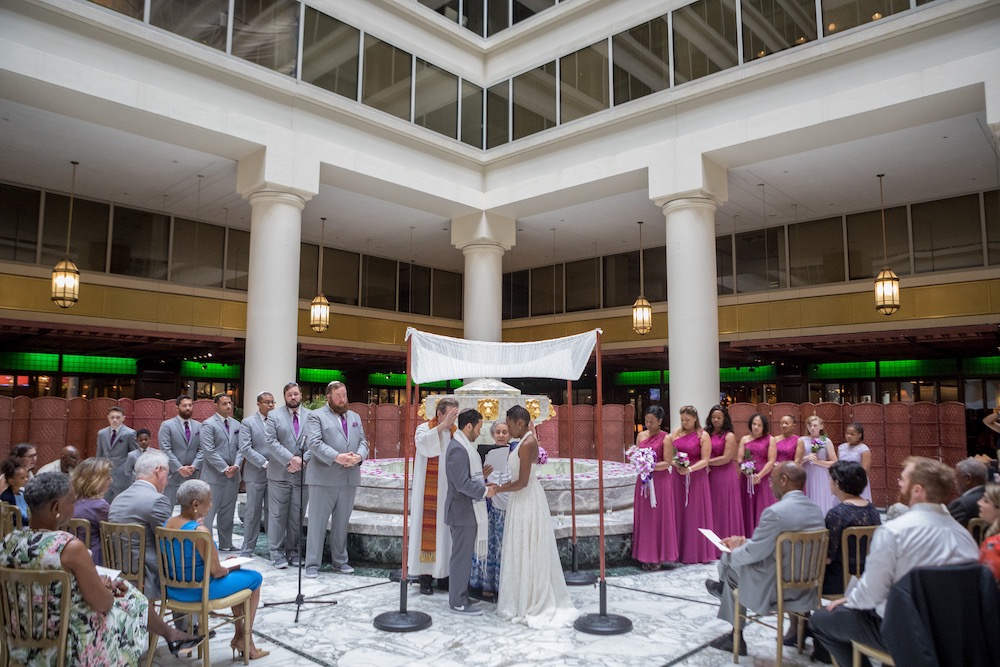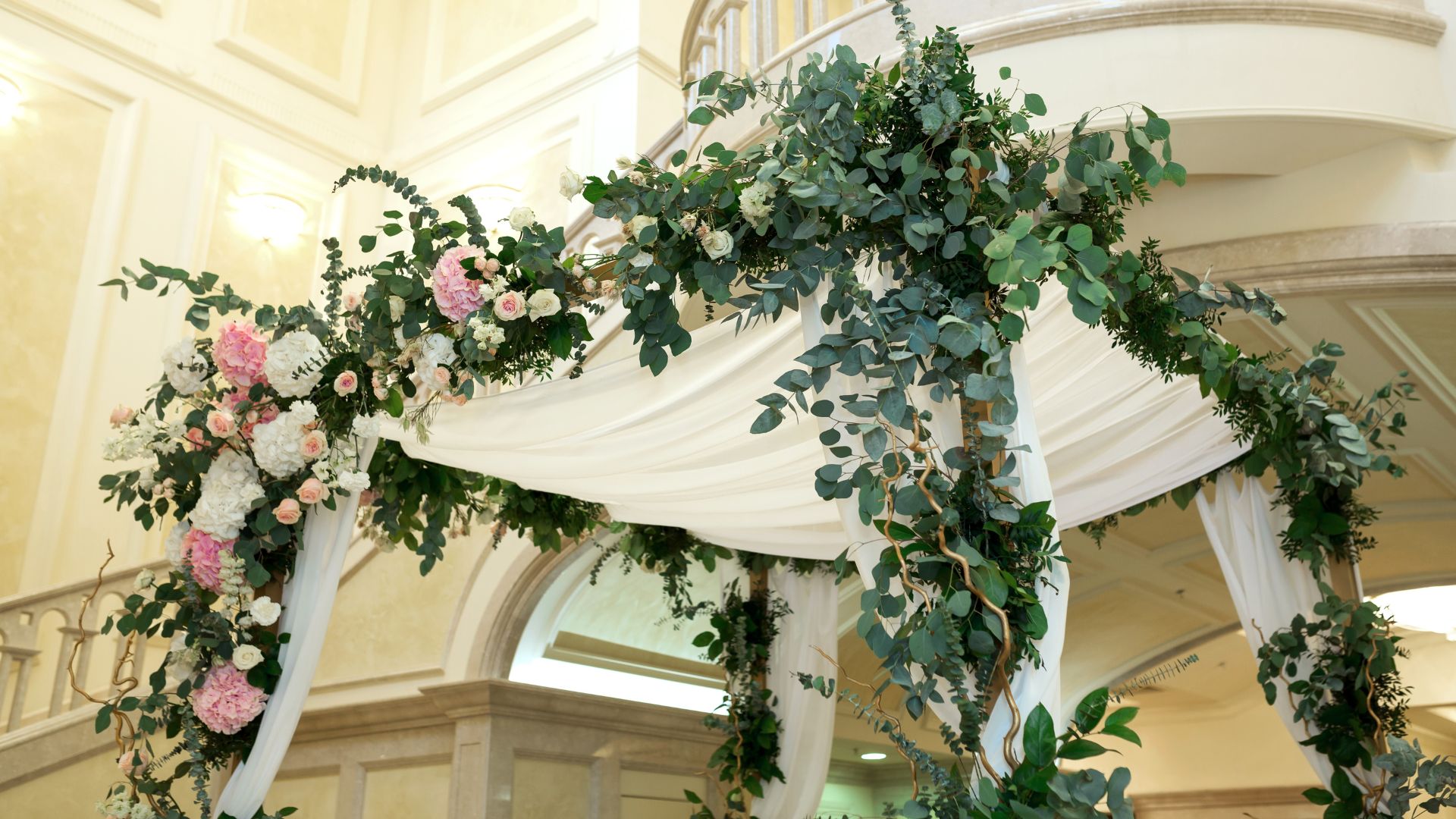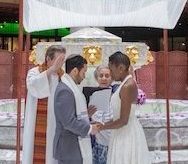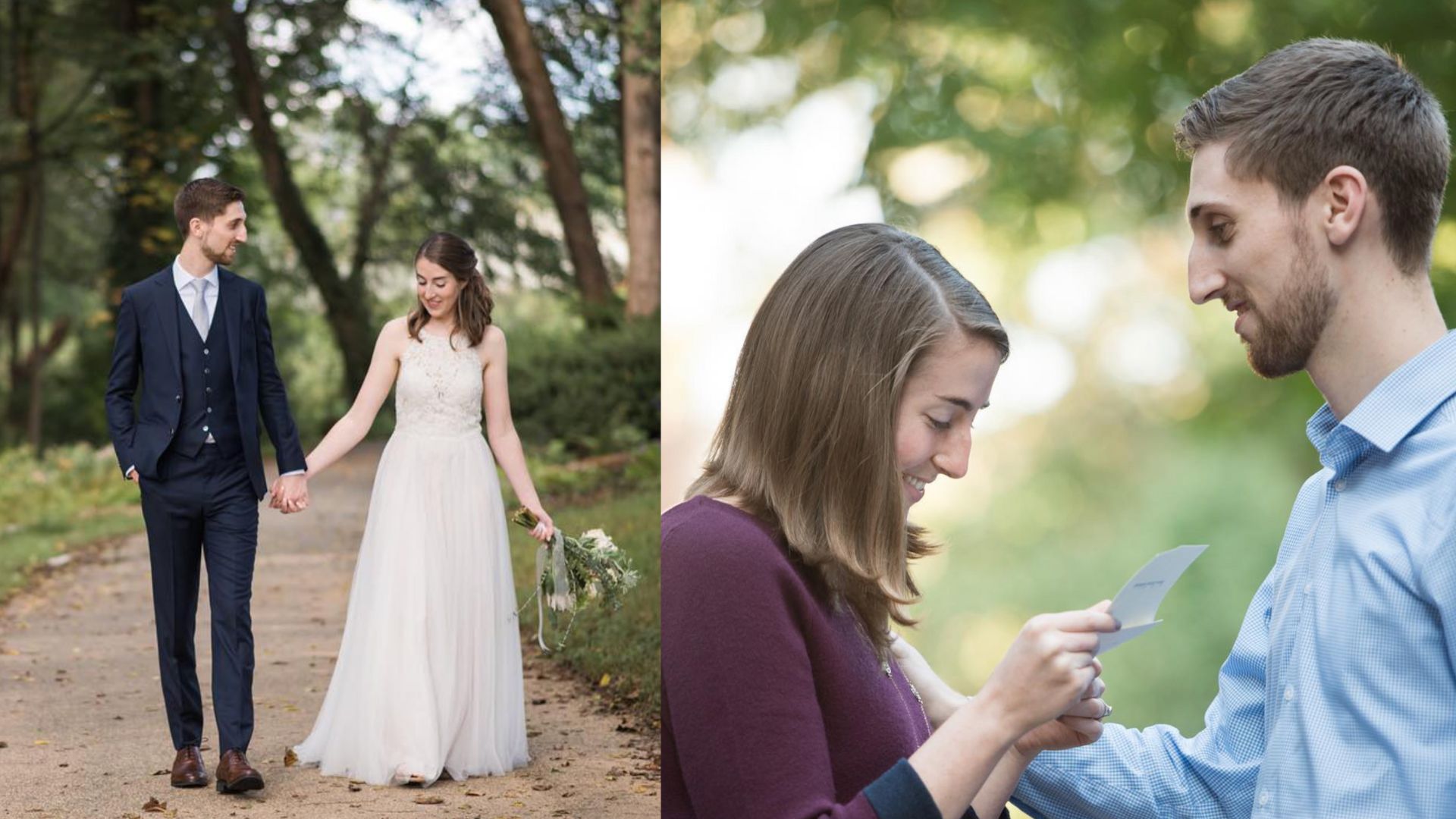Veronica and Nick completed the IFFP Couples’ Workshop.
We were introduced by a mutual friend in December 2014. Our friend was amazed we had not met before, because we were both attending the same events in the urban planning industry, members of the same DC United Fan Club, and were both really into Ultimate Fighting Champion (UFC) which can only
Preparing for Marriage
As the friend recognized, we have a lot in common but one major difference is our faith. Nick was raised in an interfaith household. His mom is a Catholic his dad is Jewish. His parents raised him in both faiths and gave him an opportunity to choose. Since his mom is non-Jewish, he had to convert to Judaism. Both of my parents are Christian. My mom is Catholic, and my dad is AME (African Methodist Episcopalian). I was confirmed Catholic and identify as Christian. Fortunately for both of us, interfaith marriages in our families are common. We wouldn’t have to worry about navigating the family. However, we would have to navigate ourselves and what it means for our future family.
During the lead up to the wedding (and somehow through all the wedding planning), we had several conversations about our future goals as a married couple. Regardless of whether we discussed finances, family, children, or our house, the conversation would inevitably include some element of religion. We decided to seek out additional knowledge and googled “interfaith family resources”, which let us to the Interfaith Families Project. After downloading and reading the information available on the website, we signed up for the Interfaith Couples Workshop. We had no idea what to expect but were pleasantly surprised at the amount of insight we gained during the workshop, particularly during the panels with interfaith couples that had children. In addition, we met our wedding officiants, Rabbi Rain
Yours, Mine, and Ours
We planned our wedding together, including writing the script for the ceremony. The most important thing for us was it blended both of our faiths as well as who we are as a couple. We listed all the things that were important to be included. For Nick, it was the breaking of the glass and having a ketubah and a Chuppah. For me, it was saying the Lord’s Prayer and remembering family members who passed away. We decided together to have secular readings from two of our favorite books, The Alchemist and Tuesdays with Morrie and secular processional/recessional songs.

Father Kelley and Rabbi Rain did a great job of explaining the significance of everything that was happening during the ceremony as well as the overlaps between the two faiths. The blending of Hebrew and English was also a nice touch. For example, during the benediction, Father Kelley would say a line in English and Rabbi Rain would repeat the line in Hebrew. All of our wedding guests remarked on how much they learned from our ceremony. A few remarked that Father Kelley and Rabbi Rain should take their show on the road. (As a side note, all of the Christian attendees loved Rabbi Rain and all of the Jewish attendees loved Father Kelley).
Creating our Own Traditions
Through the workshop, our wedding, and living life as a newly married couple, we have gained some valuable insights that we hope can help other interfaith couples:
- Don’t Over Think It: A lot of couples we met have a high level of anxiety over an interfaith relationship, whether it’s about the family, raising children, or something else. At the end of the day, if you are two people who love and are committed to each other, then you
should be able to work things out.
- Communication: Like anything in a relationship (but twice as important in this case), strong communication is key. When one of us has a question about the other’s faith, feels uncomfortable about a particular tradition, or something else, we have an honest and direct conversation. Although honesty can be brutal, we avoid any future challenges because neither of us feel as if the other doesn’t care or won’t consider our feelings or faith.
- Be Inquisitive and Open Minded: Ironically, being in an interfaith relationship has strengthened our own faiths. We are required to learn more about our own faiths to discover what we find most valuable and teach the other partner about it. We found success by learning and experiencing each other’s traditions and keeping an open mind. We regularly discuss religion, including why our faiths perform certain traditions and their basis in scripture.
- Priorities: Planning a wedding was a balancing act to blend the traditions of both religions. We were successful largely because both of us had a list of religious priorities for the wedding. Both of our lists were short (2-3 items), but every other aspect of the wedding was a breeze to plan because we felt that those aspects could be compromised upon. Since the wedding, we have created religious priorities for our household.
- Children: This is the issue that most couples (including us) spend most of their time thinking about. For us, we have decided to raise our child (who is due in August,
whoohoo !) in both religions. Neither of us felt lost or confused during our childhood because we were in interfaith households. In fact, we have faced more adversity from other aspects in our lives (i.e. racial identity). Also, we both agree that we will have failed as parents if we raised a person without a belief in a higher power. Father Kelley said it best during our wedding ceremony, G-d is too big to be fully encompassed in a single religion.
- It’s Your Relationship/Marriage/Family: Fortunately for us, our families are not overbearing and allow us to live our lives. However, we recognize that other people have families with strong opinions and traditions. Our advice to you: do what’s best for you and your partner because s/he is the person you have chosen to be in your life. Family, friends, and others will learn to respect your wishes.




